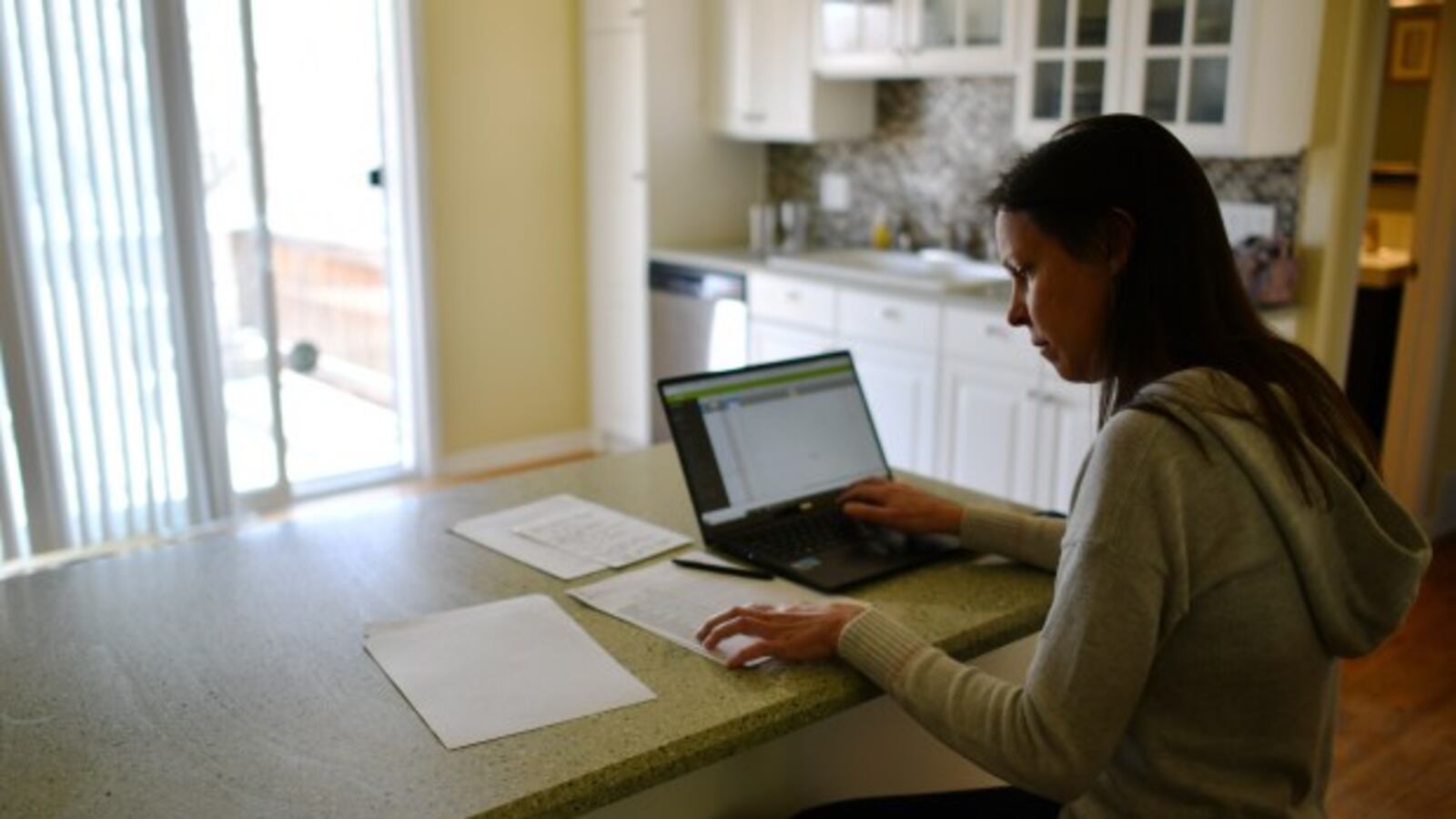As Colorado educators grapple with the unprecedented challenge of teaching remotely, Gov. Jared Polis has suspended the requirement that they be evaluated every year.
That doesn’t necessarily mean teacher evaluations are canceled. School districts could still go ahead with them if they want, though the statewide teachers union is urging that they don’t.
Many school districts have said they’re still considering their options or waiting on guidance from state education officials.
“We really need to know what the state expects from us,” David Bell, the chief human resources officer for Jeffco Public Schools, the state’s second largest district, said earlier Wednesday.
Polis included the change in an amended executive order issued Wednesday that also extends statewide school closures at least through April 30. Most schools in the state have been closed since March 16, and officials say it’s unlikely that in-person classes will resume this school year.
The executive order suspends requirements in state law regarding the “frequency and duration of employment performance evaluations” for teachers, special service providers, principals, and administrators “to enable schools and districts to focus on providing alternative learning opportunities to students.”
Colorado’s controversial educator effectiveness law requires that all teachers be evaluated every year, with the evaluation to be based on a combination of student performance on standardized tests and classroom observations of the teacher. Teachers also need to have a certain number of observations each year, depending on how long they’ve been on the job.
Colleen O’Neil, the state’s associate commissioner of educator talent, said the order provides flexibility for decisions to be made at the local level.
“Much of the direction now will be made at the district level,” O’Neil said in a statement. “The lack of state requirements is not an indicator that evaluation and professional growth do not matter. It is an indicator that flexibility in requirements is needed for districts to focus their work as they see is needed to support their students and teachers.”
As many districts canceled classes, the Colorado Department of Education announced it would not conduct standardized tests this year, a decision that was supported by the governor. The department also announced that tracking of low-performing districts and schools, with the possibility of state intervention, would be put on hold.
However, the department had not put out clear guidance on how to handle educator evaluations. Many superintendents said they needed direction because the evaluations are required by state law, though some had already said they would not use the uncharted territory of online instruction as a basis for evaluations.
A website published by the department answers questions about the new flexibility for evaluations, but leaves a lot of room for districts to make their own decisions.
One big consideration that districts may have to work out with their teachers unions involves teachers with “probationary” status. Teachers in this status, usually in their first three years of teaching, can be fired without cause. To move into “non-probationary” status, which brings more job protections, teachers need three years of effective teacher ratings. The state’s guidance says that districts may still choose to do an evaluation “of any teacher” and may want to do so for educators in this category.
In Jeffco, Bell said that informal observations, like a principal popping into a classroom — even a virtual one — may still be happening as educators try to improve how they are teaching remotely. But those observations aren’t being documented for a formal evaluation.
John Ford, president of the Jeffco teachers union, said he will propose a memorandum of understanding between the union and the district to address how teacher ratings might be handled this year.
In Denver, the state’s largest district, spokesperson Will Jones said earlier Wednesday that district human resource officials feel there are too many unknowns to have a clear plan for observations and evaluations. The district plans to work on that after remote learning launches Tuesday.
The state teachers union, the Colorado Education Association, has called for evaluations to be suspended.
In a statement, union President Amie Baca-Oehlert praised the governor’s decision but said it still left too much discretion to school districts. Unless evaluations were completed while school was still in session, all districts should suspend them for the 2019-20 school year, she said.
“Educators are resolutely focused on making distance learning a success for their students,” she said. “This includes not just their academic success, but also their social-emotional and physical health and safety. Educators need to be given the time to maintain relationships with their students, not worry about evaluations during this challenging time.”
Chalkbeat reporter Yesenia Robles contributed to this report.

